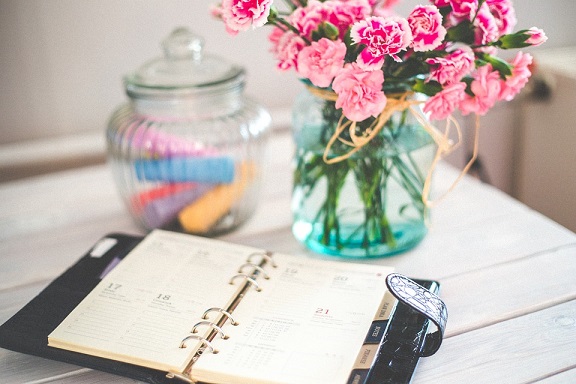
For many women, the ultrasound scan is a stand-out moment of pregnancy, providing the mother with the very first glimpses of their new addition in the making.
It’s an exciting time for mothers-to-be but can also be a daunting prospect for those experiencing first-time pregnancies.
To help put your mind at ease and prepare you for what to expect, here’s a handy overview of a typical pregnancy scan schedule...
8 to 14-week scan
Also known as a dating scan, the first scan of your baby is carried out between week 8 and week 14 of the pregnancy.
This will typically take place at your local hospital in the ultrasound department, performed by a trained sonographer. The scan itself usually lasts around 30 minutes or less.
During the scan process, a number of key facts are identified, including the due date and confirmation of twins, triplets, etc.
If your dating scan takes place between weeks 11 and 13, the sonographer will also commonly perform the first part of the combined test to screen for Down’s, Edward’s and Patau’s syndromes.
This is called the nuchal translucent scan (NT scan) and involves largely the same processes as the standard dating scan.
18 to 20-week scan
Despite being commonly referred to as a “20-week scan”, the second ultrasound in your pregnancy scan schedule can actually take place anywhere between 18 and 20 weeks.
It’s also known as a mid-pregnancy scan due to the fact that it takes place right in the middle of the average length of pregnancy (40 weeks).
Another name for the 20-week scan is an anomaly scan, as the primary purpose of this screening is to ensure your baby is developing as it should be.
32-week scan
Sometimes, the positioning of the placenta at 20 weeks can make it difficult for the sonographer to take accurate measurements of your baby’s development. This is typically due to the placenta overlapping the cervix.
If this is the case, you’ll be booked in for a follow-up scan at 32 weeks. By this time the placenta should have naturally moved out of the way, allowing for an unobstructed scan to take place.
42-week scan
By the time you reach the 42-week mark, you will have likely reached the end of your pregnancy and, hopefully, have a healthy new-born baby on your hands.
However, in the event that you haven’t gone in to labour by this point and have opted against induction, you will be offered regular monitoring.
This will involve additional ultrasound scans to check everything is okay within the womb and ensure no issues have developed.
Baby Scans with First Encounters
Outside of the standard pregnancy scan schedule routinely carried out by the NHS, First Encounters offers expecting parents the ultimate peace of mind with our own specialist scans over the course of your pregnancy.
Providing advanced details, reassuring facts and general progress updates of your baby’s development through pregnancy, these scans can be scheduled at any point throughout the pregnancy, from 8 weeks all the way up to full-term.
Reassurance Scans
Offering additional information for those looking to put their mind at rest, our Reassurance Scans are specifically designed to provide you with real-time facts and details about your baby prior to and outside of NHS appointments.
earlyAssure > Growth&Reassure > Growth&Presentation >
Gender Scans
For the ultimate gender reveal experience, First Encounters provides you with everything you need for your gender revelation plans, including a comprehensive scan as well as gender reveal props, should you wish to find out the sex at a later date in private. This gender identification service is available as early as 16 weeks.
simplyGender > secretGender > Gender&Growth >
4D Bonding & Reassurance Scans
Available as early as 18 weeks, our 4D scans offer a truly awe-inspiring glimpse at your growing baby using state of the art technology, providing 3D imagery, video footage and real-life audio of your baby in the womb.
Classic4D&Growth > Deluxe4D&Growth > Ultimate4D&Growth >
When to Scan with First Encounters?
Naturally, if you opted for every scan available, your pregnancy scan schedule would likely take up the majority of your pregnancy, not to mention the fact you would also be re-covering old ground unnecessarily.
As such, wisely choosing your First Encounters scans to complement your NHS appointments can be a sensible and enjoyable way to safely monitor your baby’s progression and experience your pregnancy to its fullest.
You may want to opt for an earlyAssure scan to put your mind at rest in the early stages of pregnancy and then return to First Encounters later on for a 4D scan to commemorate the occasion.
Meanwhile, you may wish to opt for the secretGender package to set up your own gender reveal party with friends and family on your own time.
Whichever option you choose, you won’t be disappointed. First Encounters offers a service unlike any other, combining specialist monitoring and professional service for unrivalled peace of mind and pregnancy commemoration.
For more information on our services or expert advice on which option is best for you, call today on 02920 732671 or get in touch online using the enquiry below.
Enquire Now
